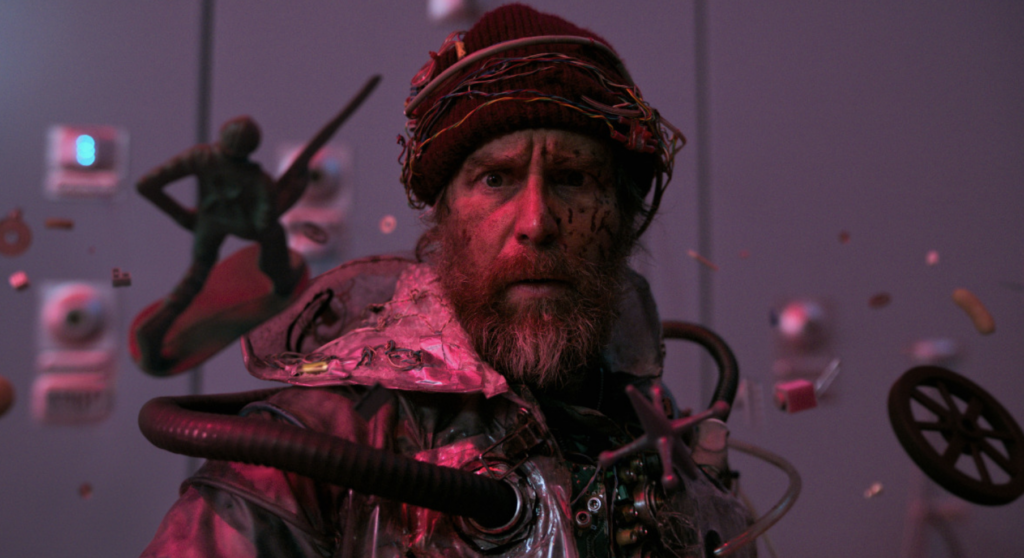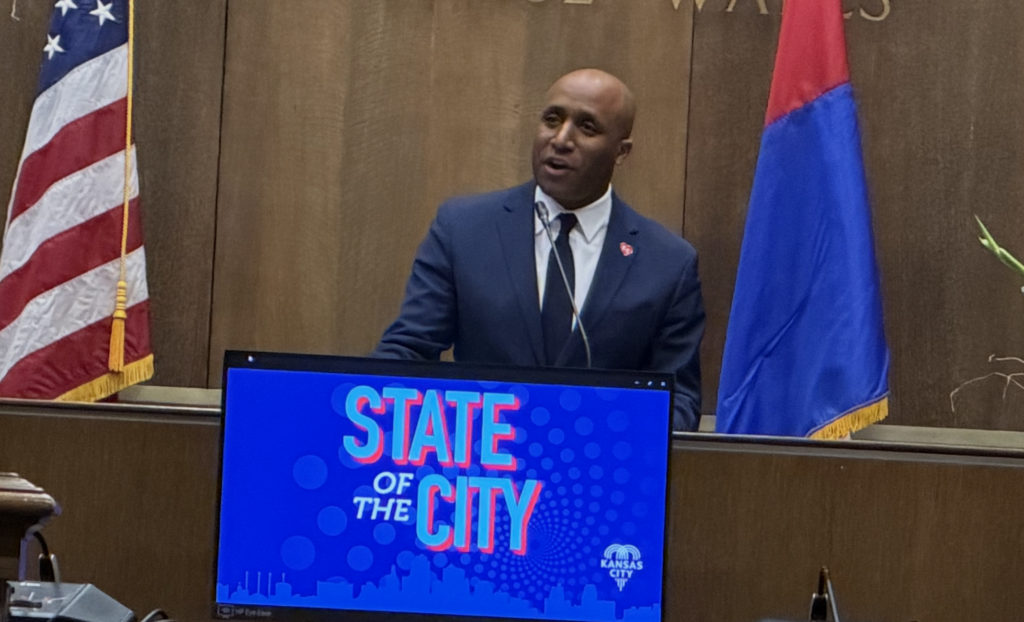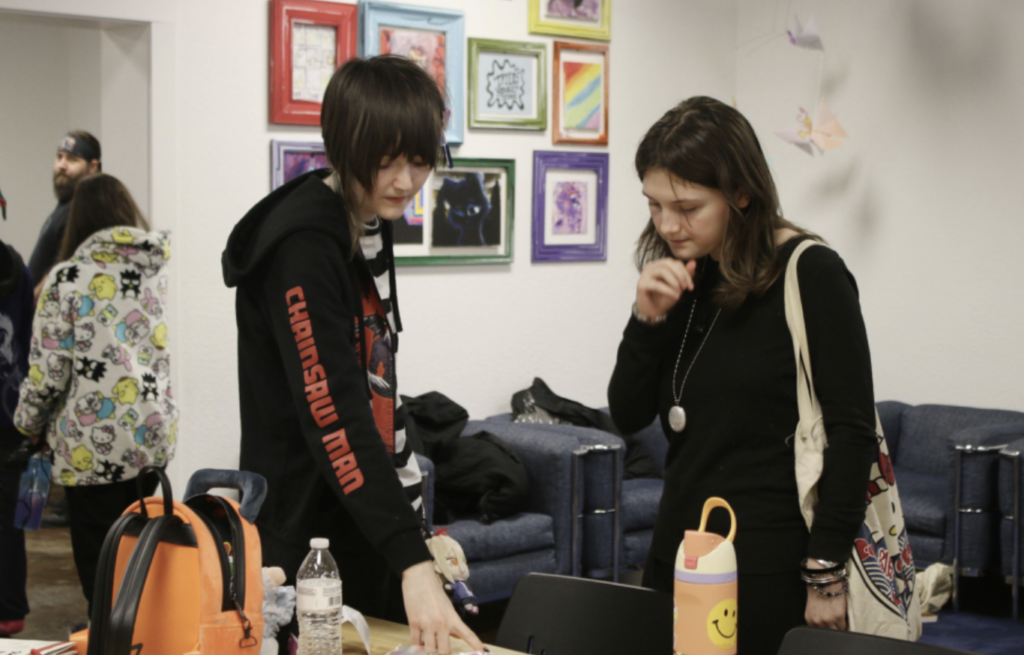Around Hear

Filling the shoes of a legend can be psychologically devastating. Such successors must meet daunting standards of excellence, and even if they do, some loyalists to the departed politician/musician/athlete will never acknowledge the newcomers’ achievements as equal. To succeed in such a situation requires enough talent to satiate those who demand instant perfection and a skin thick enough to ignore those for whom even perfection isn’t enough. Of course, keeping so busy that none of this ever gets a chance to weigh on your mind helps immeasurably. So does playing with an ensemble whose unforgiving itinerary occasionally sends it overseas for months at a time with barely a week’s notice.
“I never felt any pressure,” says Count Basie Orchestra guitarist Will Matthews, current holder of the seat once occupied by Freddie Greene. Greene spent nearly fifty years with the Kansas City-based Orchestra, appearing on most of its early classic recordings and remaining with the group until his death in 1987. “My focus was just to come in there and learn the book and play the music,” Matthews says. He had to get focused quickly — after previous guitarist Charlton Johnson left the band in early 1996 and recommended Matthews to fill his slot, the group simply asked him to meet it in New York. No audition, no rehearsal — but still, he says, no pressure.
“There’s some beautiful cats in the band,” Matthews says. “They encouraged me to be myself and not to worry what Freddie Greene did, because there’s only one Freddie Greene.”
To some degree, however, Matthews must take note of Greene’s unique style. Though he’s an exquisite lead player, as demonstrated by his recent debut album, Solo, Matthews hangs back with the Orchestra, following the tradition of the man whose reputation is aptly summarized by the title of his 1955 record Mr. Rhythm (which was recently reissued). But like Greene, Matthews gently alters the arrangements, creating mini-melodies that seamlessly blend into the whole.
“I have total freedom to move those chords around without getting in the way of anything,” Matthews explains. “I have a lot of fun playing rhythm in that context.”
Recently, Matthews managed to expand his role when he weaved “Little Joe’s Blues,” Solo‘s lone original composition, into the Orchestra’s “Lil’ Darling” medley.
“I put it in one night, and people started clapping with me,” Matthews says. “[Bandleader] Grover Mitchell really dug it, so it’s part of my feature now.”
Matthews’ feature might not appear during the Orchestra’s performances with the Kansas City Symphony at The Music Hall on Friday, September 14, and Saturday, September 15, because it’s usually reserved for longer shows, and both of the Symphony dates are one-set shots. If it makes the cut, though, “Little Joe’s Blues” should provide a dazzling display, with Matthews simultaneously playing the chords, melody and bass line in the Mississippi Delta-blues tradition.
“I wrote that song for my grandfather [Joseph Matthews Sr.],” Matthews says. “He was a guitarist who played for his own enjoyment. I don’t have any recordings of him, so I was just trying to remember the style that he played in.”
Given the power of “Little Joe’s Blues,” listeners will likely crave more Matthews originals, even though Solo‘s takes on the standards are often breathtaking — he swings alone with big-band energy on “Stompin’ at the Savoy” and adds a sultry bossa nova touch to Cole Porter‘s “Night and Day.” He promises more self-penned compositions are on the way, but with the Orchestra on tour more than half the year, his windows of opportunity are never fully open. And though he also hopes to record in the trio and quartet formats, he realizes this is easier envisioned than coordinated.
“I hadn’t even planned to do this record by myself,” he says of Solo. “But my schedule was so intense that I could never put together a group.” Though he hasn’t yet decided who he might collaborate with on his next recording, likely suspects include organ player Ken Lovern, with whom Matthews has played in several formats, and Roland Bright, a former pianist alongside Sarah Vaughn and Nancy Wilson who now enjoys a low-key residency in Kansas City. “I don’t think a lot of people around here know [Bright’s] reputation,” Matthews says.
Unfortunately, a lot of people around here don’t know the Basie Orchestra’s reputation, either — at least to the extent that fans do overseas. “Crowds there are in-the-know about the music and the history, and they’re very appreciative,” Matthews marvels. “When we played Zurich, the crowd we had was like a rock concert. Such a big, enthusiastic crowd there to hear the music the Basie band was playing — I haven’t seen that in the States.”
However, Matthews did see a spike in mainstream interest in the Orchestra around the time when Big Bad Voodoo Daddy was Super Bowl halftime material and clubs nationwide were scrambling to institute weekly swing nights. “That drew attention to some of the groups like the Basie band that are still out there, who pioneered what those guys are trying to do,” Matthews says. “It started this whole new swing-dance craze. We even started doing a few more [dance numbers] than we usually would. It brought a new generation’s attention to what the Basie band has been doing for sixty or so years.”
The Basie Orchestra continues to appeal to jazz connoisseurs young and old, with record companies mining the vaults for rereleases even as the active band wins Grammys for its new material. (Most recently, the group took home trophies for 1998’s Count Plays Duke and 1996’s Count Basie Orchestra with New York Voices, both of which featured Matthews.) This month alone, Cleopatra Records unearths Swingin’ at the Chatterbox 1937 and Blue Note exhumes Breakfast Dance and Barbecue.
Meanwhile, the Orchestra is headed to Paris on Monday, September 17, to record with vocalist Michel Leeb for a French-only release. “All I know about it is we’re going to be playing his music,” Matthews says. (Judging by michelleeb.com, which includes a doctored photo of the singer cradling an infant-sized version of himself and which recounts “ma rencontre avec Jerry Lewis,” the Orchestra might be up for quite an adventurous gig.)
After backing Mssr. Leeb, the Basie band heads to Japan and Germany, rounding out a tour that’s scheduled to last eight weeks. Then, finally, Matthews can resume the solo recording process. “I have a lot of really nice pieces I’ve written,” he says. “When I’m not working with the orchestra, I’m doing my thing, and that encompasses all kinds of things, including contemporary jazz and some R&B.”
But while Solo shifts some of the focus to the full range of his talents, Matthews will probably never escape one persistent inquiry. The question doesn’t bother him, though, mostly because the situation to which it refers never has. “People come up to me all the time and ask me how it feels to sit in Freddie Greene’s chair,” Matthews says. “It just feels really good.”




